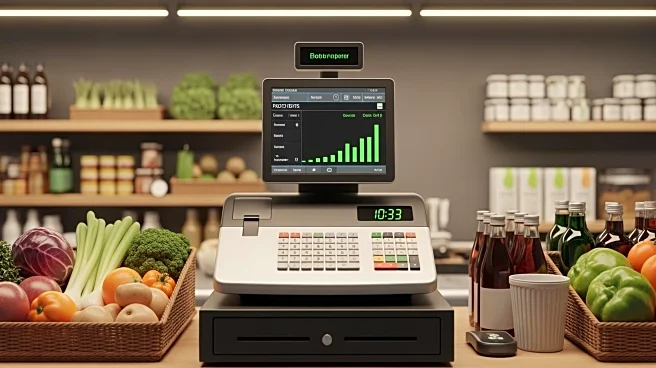What's Happening?
Lidl, the German discount supermarket chain, has reported a substantial increase in profits for the year ending February 28, 2025. Pre-tax profits rose to £156.8 million, marking a significant jump from
the previous year's operating profit of £220.8 million to £314.1 million. The company experienced a 7.9% increase in overall sales, reaching £11.7 billion. This growth was driven by a £400 million revenue increase from customers switching from rival supermarkets and £500 million from customer loyalty. Lidl also attracted 38 million more shoppers during this period and invested nearly £500,000 in infrastructure upgrades and expansions. Despite these positive results, Lidl announced plans to centralize its human resources operations, putting 130 HR roles at risk of redundancy.
Why It's Important?
Lidl's impressive financial performance underscores its position as the UK's fastest-growing supermarket, a title it has held for over two years. The company's ability to attract more shoppers and increase customer loyalty highlights its competitive edge in the discount retail sector. This growth is significant for the retail industry, as it reflects changing consumer preferences towards budget-friendly shopping options amid economic uncertainties. Lidl's strategic investments in infrastructure and efficiency further solidify its market position, potentially influencing other retailers to adopt similar strategies to remain competitive.
What's Next?
Lidl's decision to centralize its HR operations may lead to operational efficiencies but also poses challenges related to workforce management and employee morale. The company's continued investment in infrastructure suggests a focus on long-term growth and expansion. As Lidl maintains its growth trajectory, other supermarkets may need to reassess their strategies to compete effectively. The retail industry will likely monitor Lidl's moves closely, especially its impact on employment and market dynamics.









